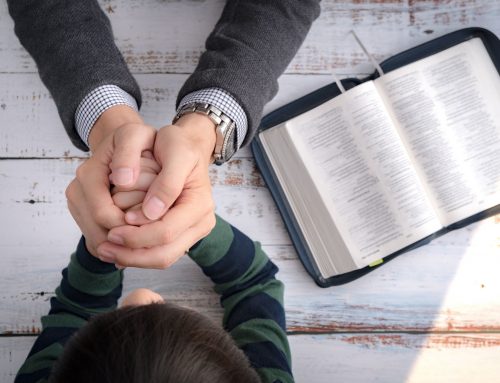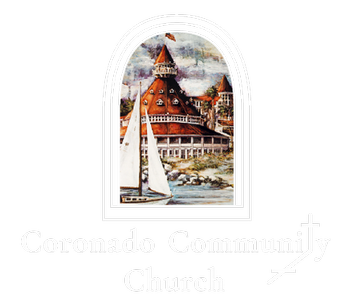Matthew 13:1-9, 18-23
A sermon by Pastor Eric Smith
July 16, 2023
A sermon by Pastor Eric Smith
July 16, 2023
The Parable of the Sower.
Parables communicate on many levels, likely why Jesus employed them as a communication tool. They say one thing to one group, another to someone else. Beyond the obvious there can be more obscure, or hidden meanings.
I studied with a rabbi when I was in seminary; Rabbi Sands. He was ordained within the Reformed Tradition of Judaism and was an excellent biblical scholar. He was intrigued by the New Testament and studied it with the perspective of one who was both learned and conversant in the Judaism of Jesus’ day. Rabbi Sands listened to Jesus’ teachings and sayings with an ear for how they would have been spoken in Hebrew – because even though Jesus spoke at least two languages the majority of his speaking and teaching would have been in Hebrew because the people he spoke to were, almost entirely, Jews.
One of the papers Rabbi Sands published was on The Parable of the Sower. Rabbi Sands suggested that the wording of the parable in verse 8, which says: Other seeds fell on good soil and brought forth grain, some 100-fold, 60, and 30 … that wording held an additional significance for Hebrew hearers. The Hebrew word that represented the total of that sum was also a word that rhymes with a Hebrew word for the Day of the Lord. It’s a word play that rabbi’s employ and the wittier the word play the higher the truth ascribed to it. It would have supported Jesus’ teaching about the Kingdom of God. It is an insight that sheds light on Jesus’ saying, let anyone with ears listen.
Another observation about this passage is that Jesus supposedly interpreted his own parable. The scholars suggest that the first part of the telling –where Jesus began: Listen! A sower went out to sow. yadda, yadda, yadda .… all of that is genuine Jesus. But then when an explanation of the parable’s meaning begins several verses later … not-so-much. Think about it, what story teller or parable teller, tells their story and then explains it? None of the good ones. They let the story mix with the imagination of the hearer and that’s it. The point of a story or a parable is open ended. There are multiple meanings.
So as this passage goes on to interpret the meaning of the parable it is only reasonable to surmise that it was not Jesus trying to explain himself – it was much more likely Matthew trying to explain what he thought Jesus meant.
What we know for certain about this passage is that it is yet another instance of Jesus’ portraying the Kingdom of God… God’s intentional community. We’ll come back to this later.
I grew up in the church without much intention on my own part. I was a peripheral presence. If I didn’t have to sit with my mom on the floor level of the sanctuary I sat in the balcony. I did not think much about the meaning and the power of community and faith until after high school.
Then, through a series of providential coincidences, I was invited to travel and perform with a group of college-age musicians whose summertime mission was to share the gospel in music. I didn’t know much about the gospel, and so I didn’t care much one way or another about sharing it, but the invitation to do music and travel was good – I had nothing better going on – and… I had recently awakened to a new and personal appreciation of faith in God and Jesus. So I went.
There was a 10 day rehearsal camp and then we launched. There were 110 performances over 90 days through the Pacific Northwest and then across the ocean to Hawaii, and the Orient. The others I was with were church kids from all different denominations and backgrounds. I was really not a church kid – I was a beach kid.
Here’s what I experienced: The group worked at being a Christian community. We helped each other, supported each other, studied the Bible together, prayed together, and shared genuine faith with each other and everywhere the group went. I had never experienced anything like it. It wasn’t perfect… people aren’t perfect in that sense. But I discovered this community-connection with others and with God to be powerful and compelling. I had never known anything like it.
Toward the end of the summer I sent my parents a letter trying to explain to them what I was experiencing and sharing with them that I intended to go into some kind of full-time Christian service. The rest, as they say, is history.
Since then I have been a youth leader, a young pastor, and now an elder of the church through the ups and the downs of Christian Community for 50 years. For better, or for worse… it is an intentional community.
Here’s a bit more definition…
An ‘intentional community’ is a group of people who have chosen to live with a common purpose, working supportively to demonstrate a lifestyle that reflects their shared core values.
The kingdom of God is intentional community. And there is less of it in America today than there has been in recent history.
Yet people continue to be hungry for genuine connection – to find a sense of community that they can trust. But these days we’re suspicious; it seems like everyone and every cause has an agenda – and most of them have to do with someone making more money.
I read an insightful analysis written by a social scientist name Ryan Burge in his book called, The Nones. That’s N-O-N-E-S… Nones. I’m not going to take you too far into the weeds with this, but here are a couple of touchpoints.
We have known that participation in organized religion in America has been on the wane for decades. What I did not know is that during the four year period between 2018 and 2022 the share of Americans who say they have have no religious affiliation rose by … 5 percent. That increase represents 15 million newly religiously disaffiliated adults… a sum that is larger than the Southern Baptist Convention…which is the largest Protestant denomination in America (Ryan Burge)
Without burying you in statistics… let me move to one result… the trend suggests that
Moderate Protestants (as a group) are going extinct.
We would be part of this group. So why is this happening?
There isn’t an all-encompassing answer to that question. The dynamics of disaffiliation in our national experience come from a confluence of factors that have emerged in our culture.
Let me name a few factors… briefly…
Secularization is one. As we have become more educated with growing financial prosperity the result has been a gradual move away from religion. Think back a few hundred years. We’re no longer farm folks praying for rain.
Then the internet. … millions of Americans now declare they are religiously unaffiliated because of things they have seen or read on the internet.
The next is Politics. The primary issues of conflict in politics have been morality, racism, and economics, and the battles are passionate. Then, interestingly, the religious disaffiliation has occurred almost entirely among people who placed themselves on the left side of the political spectrum. One author noted that
political concerns are driving religious behavior
more than
theological beliefs guiding political principles. (Burge)
Americans are living more isolated lives today than at any point in our recent history… and… people have lost trust in … institutions (Putnam).
I haven’t given you the statistics nor the anecdotes to back all of this up but they exist… you don’t want to be here that long! It is a bit depressing.
OK… so we know that things have changed, and not for the better. Let’s talk about how you might choose to deal with our present-day reality.
You know… it is one of the rewards of aging that we can look back at earlier times of life and revel in our happy recollections. Most of the people that I grew up with in Coronado don’t live here now. A few do. The rest are what I like to call the Islanders of the Diaspora. No matter where they live now they look back to Coronado as home. The thing is, the Coronado of the 50’s, 60’s and 70’s that we knew and loved no longer exists except in our minds. What is here is still great… but it is very different from those earlier decades.
Present day reality in our American culture is very different from what we have formerly known. That’s not bad. It is true. You may miss the former ways… you may long for the former ways… but those days are over… they are gone. Yet what we have now, and who we are today is still great.
Living as God’s faithful person asks that you live in the present… and you live in hope for the future. That’s gospel. That’s kingdom of God. That’s basic intentional community. Remember way back in the early Old Testament when Moses asked for God’s name? God told him. The response was, I am.
Present… not past… not future. Present. God is in the present, and if we’re with God we’re in the present, too.
Next… a foundational theological concept. Nine hundred years ago Thomas Aquinas developed Imago Dei. The words are Latin. They mean the image of God.
Let me illustrate…
The album, Four Way Street was released by Crosby, Stills, Nash, and Young in 1971. On that album is a song written entitled, Love the One You’re With. The theme is simple: if your lover is not available… love the one you’re with. The song expresses a free love sentiment that was popular practice with young folks at that time.
It’s not a religious song. It’s definitely not a church song. But the theme of loving the one you are with is Imago Dei material. That person is the image of God.
However we choose to describe it… Spiritual love, God’s love, love from the Universe… Imago Dei is not sentimental. It is not attached to family, romance, or even personality, It is what we can call, a disinterested love.
That’s not a negative statement… disinterested love is the ultimate expression of love … God’s love. In this way I don’t love you because of anything you do, or the way you appear… I love you because you are a human being… the image of God … and God lives in and through you (whether you realize it or not!)
As you practice using your eyes to see (as Jesus said) your intention for that other person is to validate them, to respect them, to value them, and to connect with them… maybe a little, maybe a lot. You only control your end of things. The seeds might fall on rocky ground.
Intentional Community becomes possible when we recognize the Imago Dei in another person.
Reinhold Niebuhr, one of our great theologians of the 20th century had profound advice that we need to hear as we move forward in this challenging time of our lives in our modern-day culture. He wrote this…
God, grant me the serenity to accept the things I cannot change,
the courage to change the things I can,
and the wisdom to know the difference.
In our reading of the parable of the sower and the seed, Jesus noted that some of the seed will fall on inhospitable soil and never take root, while other seed will find fertile ground, take root, and create a bountiful harvest.
Where the seed lands is not our concern. Just sowing … scattering it among the many Imago Dei’s we encounter each day.
The winds of secularization and polarization swirl around us like never before. Most of that seed is going to fall on rocky soil, never to reap a harvest. And it seems there are fewer of us to spread it every year. It would be easy to disaffiliate… to give up hope… many have.
So let me recall the words of the apostle Paul to the church in Galatia…
let us not grow weary in doing right,
for we will reap at harvest time if we do not give up.
You have community,
you have connection,
You are part of a legacy of care that carries far beyond ourselves.
You are good news for a tired and hurting world.
May your choices for life and living always represent your intention.




